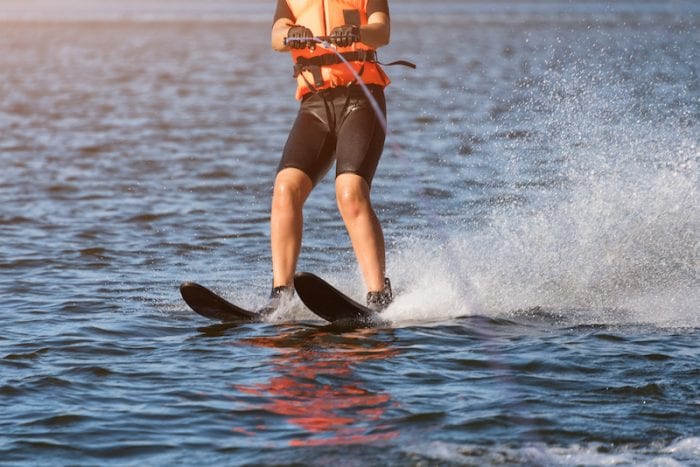As spring turns to summer, people flock to their favorite beach or lake for a little rest and relaxation as well as some fun in the sun. While water sports are nothing new, it seems that each year they get more and more intense with new devices and accessories always hitting the market like the increasingly popular water jet packs that look.
The problem is that activities that are supposed to be fun and relaxing, like water skiing or wakeboarding, can take a sharp turn if injuries occur. Here are four ways to help prevent water sports injuries so you can make the most of your time on the water:
- Know Your Limits
When engaging in new watersports, it is easy to look at them with a degree of ease and not understand just how taxing they may be or how much physical exertion is required. This is especially important for sports such as water skiing and jet skiing in which a high velocity may be involved, requiring extreme body control.
Like any sports, it is best to learn the basics before progressing to more advanced and challenging stages. While it may seem like a good idea to “go big or go home” while on vacation with friends, it is essential to treat one’s body with respect, paying attention to limits and understanding the consequences of not doing so.
- Don’t Forget to Warm-Up
Just like going for a run or engaging in other strenuous physical activity, loosening up the muscles and getting the blood flowing prior to activity may help to prevent muscle pulls and ligament strains by preparing the central nervous system for exercise. A light bout of stretching is better than nothing, but performing a small dynamic warm-up is best. This includes getting in the water to swim and move around a bit so your body can adjust to the temperature.
You never run a marathon without warming up and participating in water sports is no different.
- Use the Buddy System
Freak accidents happen each and every day. When they do occur, especially in the water, it is necessary to have another trusted individual, preferably someone trained in water rescue, to be there in the event things go awry. While it may seem like an unnecessary precaution to have a lifeguard present while wakeboarding, it is far better to have someone there and not need them opposed to the opposite.
Having someone nearby to assist if needed can help reduce the risk of extensive injuries following a water sports accident due to a timely response rate. Even if a lifeguard is not present, even having a friend who can recognize an issue or call EMS is a far better option than being alone.
- Wear Protective Equipment
Regardless of the intensity of water sport activity you’re participating in, wearing a life jacket is suggested even for strong swimmers. Any time water is involved, drowning is always a risk. Wearing a jacket, especially when on any form of vessel, will be extremely beneficial in the event one falls off and potentially hits their head, causing possible confusion or even a lack of consciousness.
Additionally, wearing a helmet may be advised for a number of watersports. While its use may not fully prevent a concussion, it does have the ability to help protect the head from the trauma associated with high impact, high-velocity sports.
When to Seek Help
Despite your best efforts to prevent water sports injuries, accidents can still happen. If you suffer an injury, the experienced team at Paris Orthopedic specialize in the diagnosis and treatment of some of the most common water sports injuries such as strains, sprains and fractures. To request an appointment, call (903) 737-0000.


